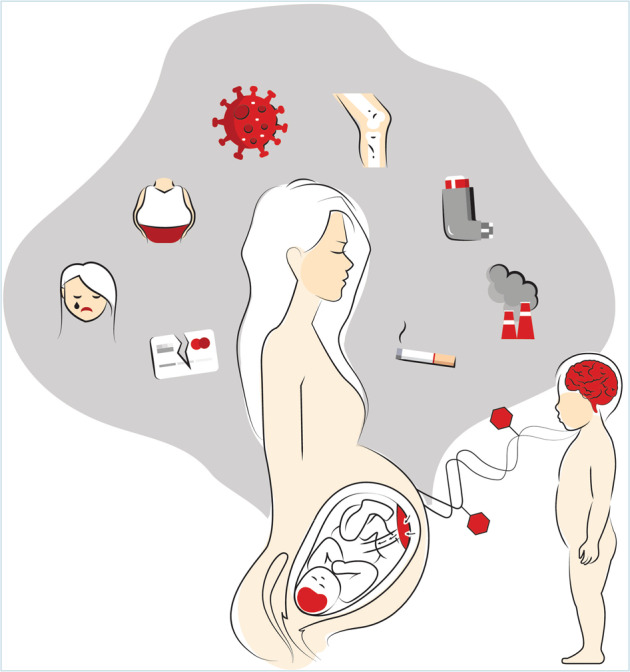Fig. 1. Maternal immune activation, triggered by acute and systemic chronic inflammation, is proposed to affect fetal neurodevelopment, through inflammatory and epigenetic mechanisms.

Common maternal disease and environmental factors including obesity, gestational diabetes, pre-eclampsia, smoking, pollution, low socioeconomic status, depression, psychosocial stress, autoimmune diseases and asthma are implicated in systemic chronic inflammation. In addition, infection is involved in acute inflammation. These maternal inflammatory states play a key role in immune activation during pregnancy through the placenta and immature blood-brain barrier to cause dysfunction in the developing fetal brain and prime the child to be susceptible to future hits through microglia activation and epigenetic alterations, manifesting a spectrum of diverse neurodevelopmental outcomes with varied expression and progression.
